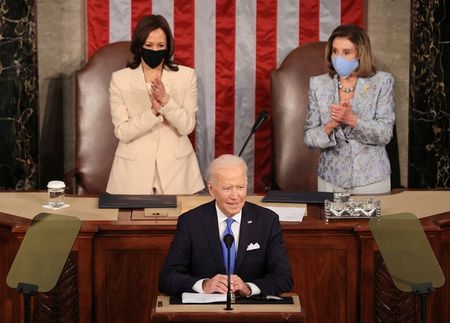UK could rake in £14.7bn annually from Biden’s tax plan, think tank says

The UK could rake in an extra £14.7bn every year by adopting US president Joe Biden’s ambitious tax proposal, according to the Institute for Public Policy Research today.
Biden’s proposal for a new global minimum corporation tax rate of 21 per cent could bolster the UK’s recovery finances post-pandemic and Brexit, the Institute for Public Policy Research (IPPR) Centre for Economic Justice has said.
The leading think tank urged the government to adopt the US proposal at the upcoming G7 summit in Cornwall, saying that it would make the global system fairer while allowing the UK to raise billions in critical revenue.
The proposal seeks to push the world’s multinational giants to pay taxes to national governments based on sales the companies generate in each country.
The US president also wants to outline a global minimum rate, with the aim to discourage firms from shifting profits to help stop tax undercutting.
“For years, big businesses all around the world have avoided taxes, to the tune of $500bn per year, at the expense of all those domestic businesses that do pay their fair taxes,” senior economist at the IPPR, Carsten Jung, said.
“Fixing this will restore the level playing field for all UK businesses, and it will address one of the big economic injustices of our time.”
A minimum global corporate tax rate of 21 per cent was initially proposed, however, the US could accept a 15 per cent minimum.
Five of other G7 states have signalled that they will back the proposals, but the UK has yet to do so.
However, chancellor Rishi Sunak has already set out plans to up the UK’s corporation tax rate from 19 per cent to 25 per cent by 2023 – in line with the US’s suggestion.
The IPPR has said adopting the measure could be an opportunity for global leadership for post-Brexit Britain, while the money earnt in one year could rebuild the NHS after a straining crisis.
Opting for a 15 per cent rate would only raise around £7.9bn, and would keep “the race to the bottom on tax” mindset, it added.
“Reaching an international agreement on how large digital companies are taxed has been a priority for the chancellor since he took office,” a Treasury spokesperson said.
“Our consistent position has been that it matters where tax is paid and any agreement must ensure digital businesses pay tax in the UK that reflects their economic activities.
“We welcome the US’s renewed commitment to tackling the issue and agree that minimum taxes might help to ensure businesses pay tax – as long as they are part of that package approach.”